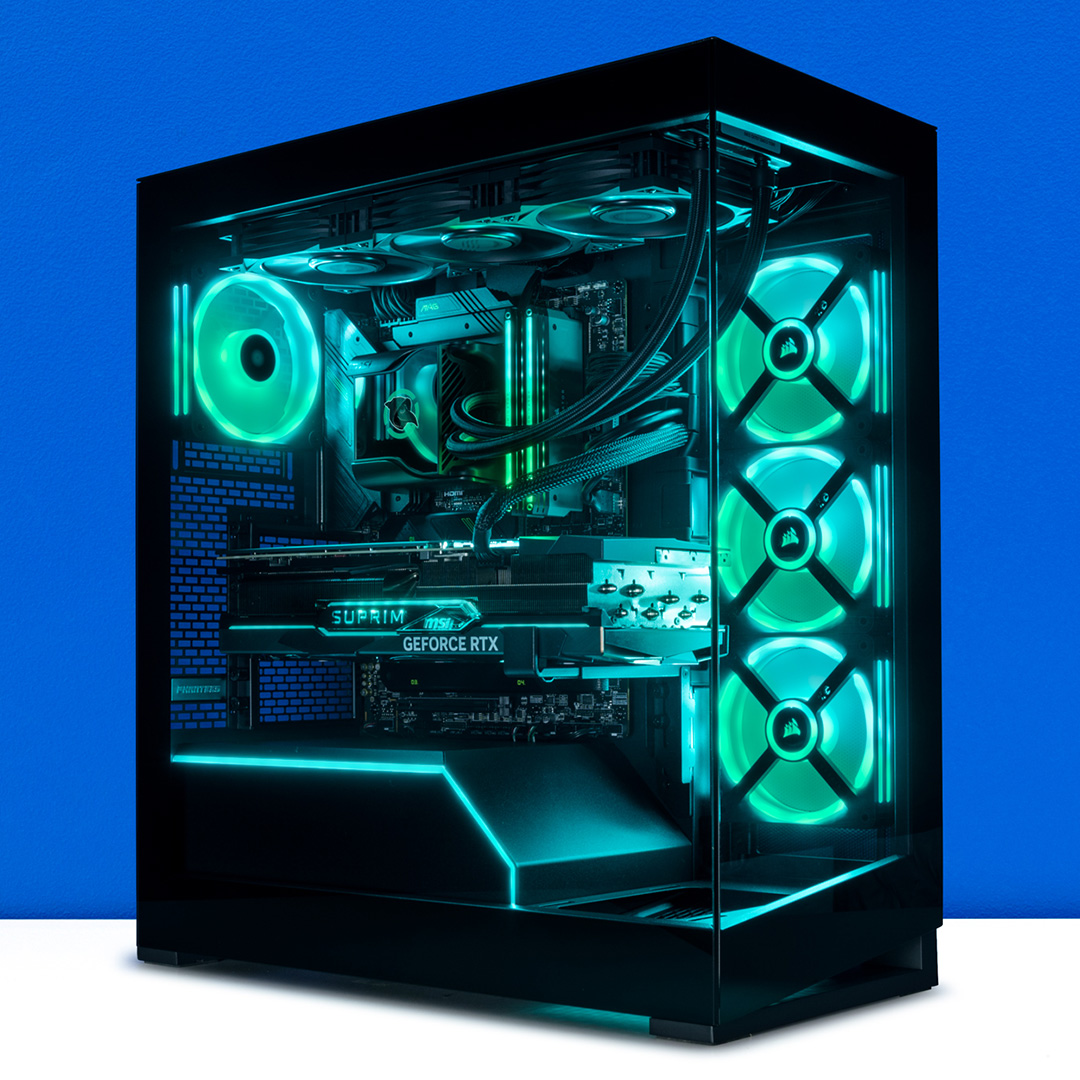pc g sets the stage for this enthralling narrative, offering readers a glimpse into a story that is rich in detail and brimming with originality from the outset. Over the past two decades, PC gaming has evolved dramatically, transforming from a niche hobby into a global phenomenon. This journey encompasses the rise of powerful gaming rigs, diverse genres, and shifting community dynamics that distinguish PC gaming from console counterparts.
From understanding essential hardware components to exploring popular game genres, this discussion aims to provide a comprehensive overview of the PC gaming landscape, showcasing its unique attributes and ongoing innovations.
Understanding PC Gaming

The realm of PC gaming has undergone a remarkable transformation over the past two decades, characterized by technological advancements, the rise of digital distribution, and the growing influence of community engagement. This evolution has not only changed the way games are played and developed but has also shaped the very culture surrounding gaming.
The evolution of PC gaming has been driven by significant technological innovations such as powerful graphics cards, multi-core processors, and high-speed internet connectivity. These advancements have enabled developers to create immersive experiences that were previously unimaginable. The introduction of digital distribution platforms like Steam, Origin, and Epic Games Store has also revolutionized how games are purchased and accessed, allowing for greater convenience and accessibility.
Major Gaming Platforms and Their Impact
The PC gaming landscape has been shaped by several major platforms, each contributing to the community in unique ways. These platforms include Steam, Epic Games Store, GOG, and Origin. Understanding their impact is essential for grasping the current state of PC gaming.
The following points highlight the contributions of these platforms:
- Steam: Launched in 2003, Steam has become the dominant platform for PC gaming, boasting a vast library of games and regular discounts that entice players. Its community features, including forums and mod support, have fostered a strong sense of camaraderie among gamers.
- Epic Games Store: Introduced in late 2018, Epic has made waves with its aggressive marketing strategies, including offering exclusive titles and free games, which encourage players to explore new experiences while challenging established platforms.
- GOG: Known for its commitment to DRM-free gaming, GOG has attracted gamers who value ownership and accessibility. It also emphasizes classic titles, ensuring that retro gaming remains a significant part of the community.
- Origin: EA’s platform has carved a niche by offering exclusive access to their franchises, such as “The Sims” and “Battlefield,” thereby sustaining interest among fans of these series.
Differences Between PC Gaming and Console Gaming Experiences
Comparing PC gaming to console gaming reveals distinct differences in performance, customization, and game accessibility. Each platform offers unique benefits that cater to various preferences among gamers.
The primary differences include:
- Performance: PCs typically offer superior performance capabilities, with options for upgrading components like graphics cards and processors. This allows for enhanced graphics and frame rates compared to consoles, which often have fixed hardware.
- Customization: The PC gaming experience allows for extensive customization, from hardware components to game settings, enabling players to tailor their gaming experience to their specific preferences.
- Game Library: PCs host a broader range of games, including indie titles and mods that often are not available on consoles. This diversity provides players with more options for unique gaming experiences.
- Social Interaction: Many PC games promote extensive online communities, allowing for collaborative play and social interaction through platforms like Discord, which can foster deeper connections among players.
“The flexibility and power of PC gaming create an environment where players can truly express their gaming identities.”
Essential Hardware for PC Gaming

Building a gaming PC requires a careful selection of components that work harmoniously to deliver an exceptional gaming experience. The right hardware can significantly influence the performance, graphics quality, and overall enjoyment of games. Understanding the essential components is crucial for anyone looking to dive into the world of PC gaming.
Key Components for Building a Gaming PC, Pc g
The core components of a gaming PC include the CPU, GPU, RAM, and storage. Each of these parts plays a vital role in the system’s performance and gaming capabilities.
- CPU (Central Processing Unit): Often referred to as the brain of the computer, the CPU handles all the instructions and processes. A powerful CPU is crucial for ensuring smooth gameplay, especially in CPU-intensive titles.
- GPU (Graphics Processing Unit): The GPU is responsible for rendering images and video. For gaming, a high-end GPU can dramatically improve visual fidelity and frame rates, making it the most critical component for a gaming experience.
- RAM (Random Access Memory): RAM is used to store data that the CPU needs to access quickly. For gaming, a minimum of 16GB is recommended to ensure adequate performance in modern games.
- Storage: Fast storage solutions, like SSDs (Solid State Drives), drastically improve load times and overall system responsiveness. While HDDs (Hard Disk Drives) offer more storage at a lower cost, SSDs are preferred for gaming.
Comparison of Budget vs. High-End Gaming Setups
Understanding the difference between budget and high-end gaming setups helps gamers make informed decisions based on their preferences and financial considerations. Below is a comparison table showcasing specifications and expected performance for both setups.
| Component | Budget Setup | High-End Setup |
|---|---|---|
| CPU | AMD Ryzen 5 5600X | Intel Core i9-12900K |
| GPU | NVIDIA GeForce GTX 1660 Super | NVIDIA GeForce RTX 3080 |
| RAM | 16GB DDR4 | 32GB DDR5 |
| Storage | 512GB SSD + 1TB HDD | 1TB NVMe SSD |
| Expected Performance | 1080p at 60FPS | 4K at 144FPS |
Importance of Cooling Systems and Power Supply
Maintaining optimal performance requires a reliable cooling system and a quality power supply. Overheating can lead to thermal throttling, where components reduce their performance to prevent damage. Adequate cooling solutions, such as air or liquid cooling systems, help keep temperatures in check.
The power supply (PSU) is equally important, as it provides the necessary power to all components. A PSU with a good efficiency rating and enough wattage ensures the system runs smoothly, especially under heavy loads. A rule of thumb is to choose a PSU rated at least 20% higher than the total wattage requirement of the components.
“Quality cooling and a robust power supply are essential for sustaining performance and longevity in gaming PCs.”
Popular PC Game Genres

The variety of PC game genres caters to diverse gaming preferences, allowing players to immerse themselves in unique experiences. Each genre offers distinct gameplay mechanics and narratives, appealing to different types of gamers. Understanding these genres is crucial for gamers looking to explore new titles or for newcomers who want to find their niche in the vast gaming landscape.
PC gaming encompasses several popular genres, with each bringing its own flavor to the gaming experience. Below is a list of prominent genres, along with defining characteristics and examples that highlight their appeal.
Action Games
Action games are characterized by fast-paced gameplay that emphasizes physical challenges, including hand-eye coordination and reaction time. These games often feature a strong narrative, requiring players to combat enemies or solve puzzles quickly. Examples include:
- Doom Eternal – A first-person shooter that combines intense combat with exploration.
- Dark Souls III – Known for its challenging gameplay and intricate world design.
Action games appeal to gamers who enjoy adrenaline-pumping experiences and competition.
Role-Playing Games (RPGs)
RPGs allow players to assume the roles of characters in a fictional setting, often involving character development through experience points and quests. These games frequently feature expansive worlds with deep narratives. Notable examples include:
- The Witcher 3: Wild Hunt – Offers rich storytelling and character customization.
- Final Fantasy XV – Combines stunning visuals with an emotional narrative.
RPGs attract gamers who appreciate storytelling, character growth, and exploration.
Strategy Games
Strategy games require players to think critically and make decisions to achieve victory, often involving resource management and tactical planning. They can be turn-based or real-time. Examples include:
- Civilization VI – A turn-based strategy game where players build and expand empires through history.
- StarCraft II – A real-time strategy game focusing on resource management and tactical combat.
This genre appeals to gamers who enjoy planning and executing strategies.
Simulation Games
Simulation games aim to replicate real-world activities, providing players with realistic experiences in various settings. They can cover anything from life simulation to vehicle operation. Examples include:
- The Sims 4 – A life simulation game that allows players to create and control people.
- Microsoft Flight Simulator – Offers an incredibly realistic flying experience with real-world mapping.
Simulation games attract those who enjoy detailed environments and immersive experiences.
Emerging Trends in PC Gaming Genres
The landscape of PC gaming genres is continually evolving, influenced by technological advancements and player preferences. Noteworthy trends include the rise of hybrid genres, like RPG shooters that blend action with character progression, seen in titles like Borderlands 3. Additionally, the popularity of battle royale games, such as Fortnite and Apex Legends, reflects a shift towards multiplayer experiences.
There’s also a growing interest in narrative-driven games that offer player choice, which enhances immersion. As technology continues to improve, we can expect further developments in VR and AR gaming, providing even more engaging experiences for players. As genres continue to blend and new innovations arise, the future of PC gaming promises to be dynamic and exciting.
If you’re looking for a thrilling game to play, templerun offers an exciting experience that keeps you on your toes. The fast-paced action and endless obstacles make it addictive, as you navigate through ancient ruins while collecting coins and power-ups. It’s the perfect way to test your reflexes and enjoy some competitive fun with friends.
If you’re looking for a thrilling gaming experience, you should definitely check out templerun. This fast-paced adventure will keep you on your toes as you navigate through challenging obstacles and collect coins. It’s not just about speed; strategy plays a key role in mastering the game. So, gear up and see how far you can run in this exciting escapade!

